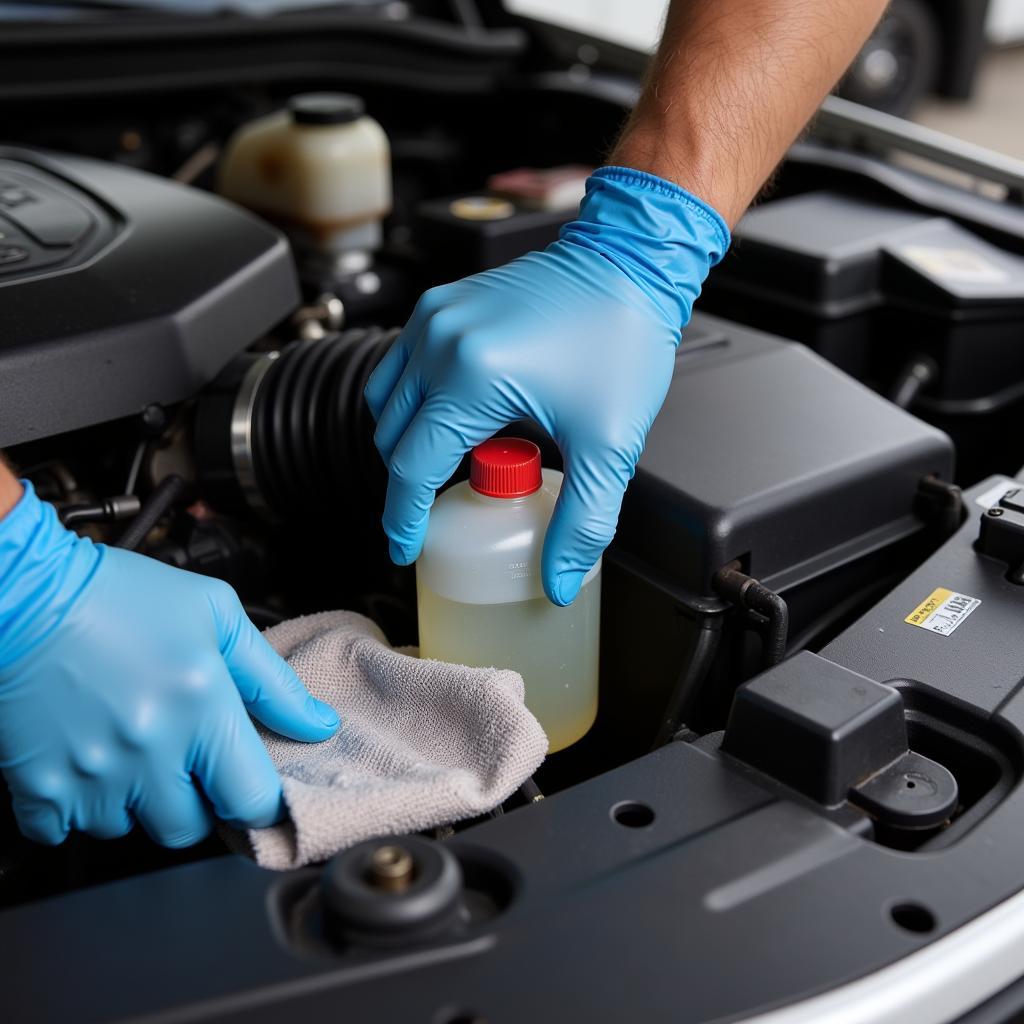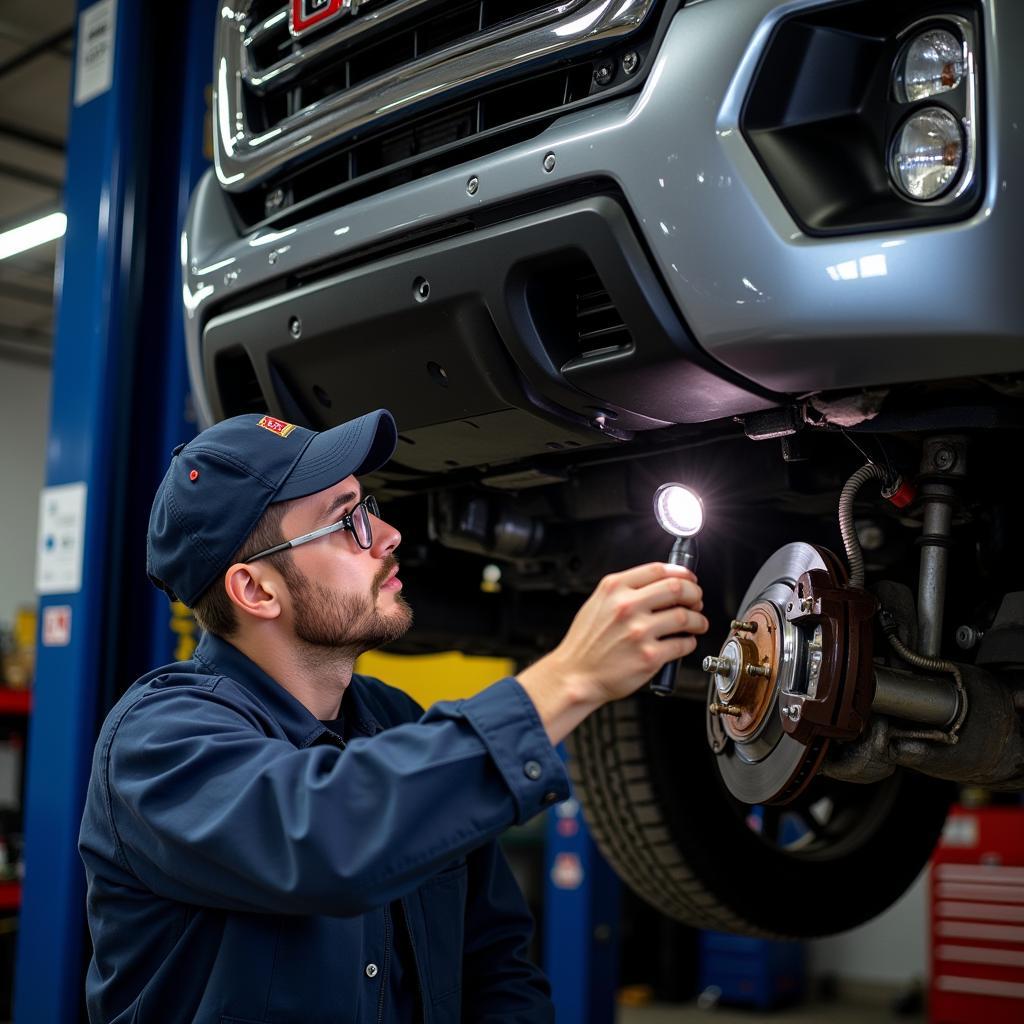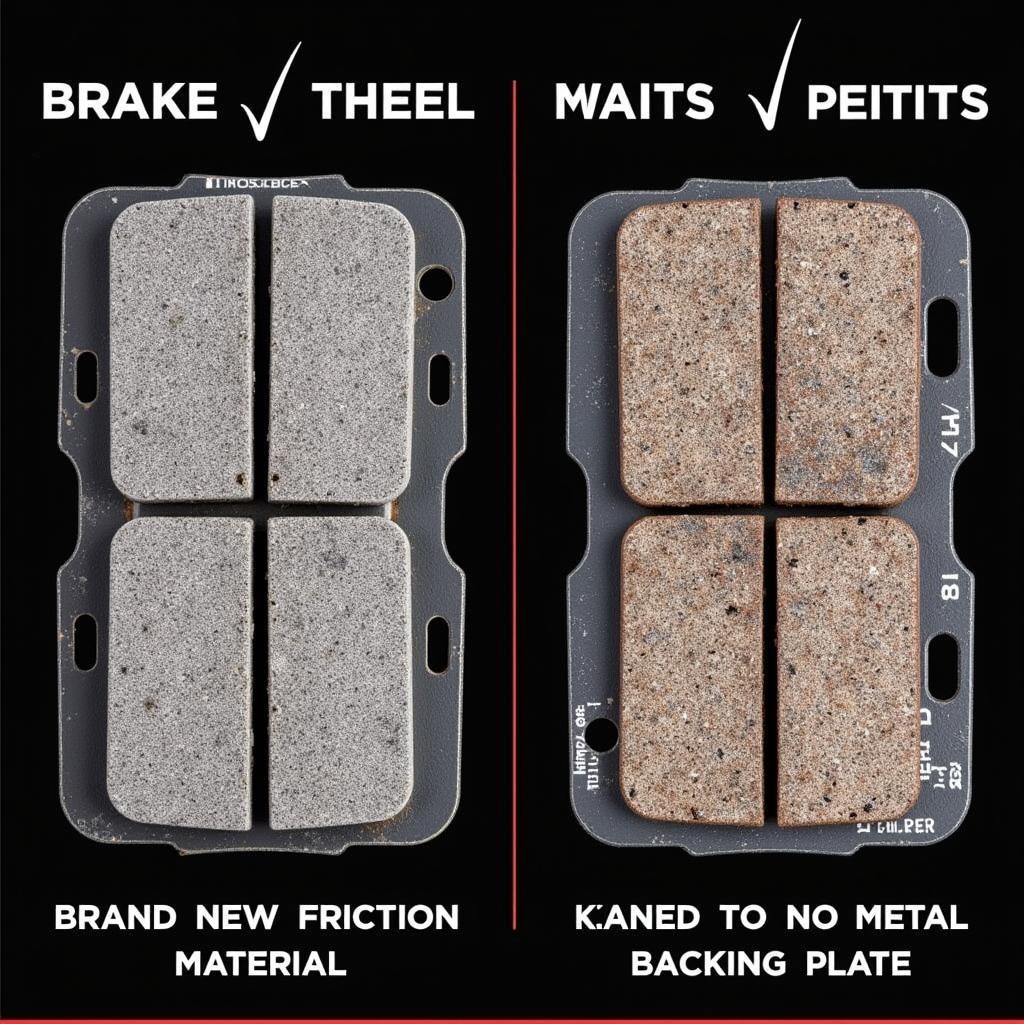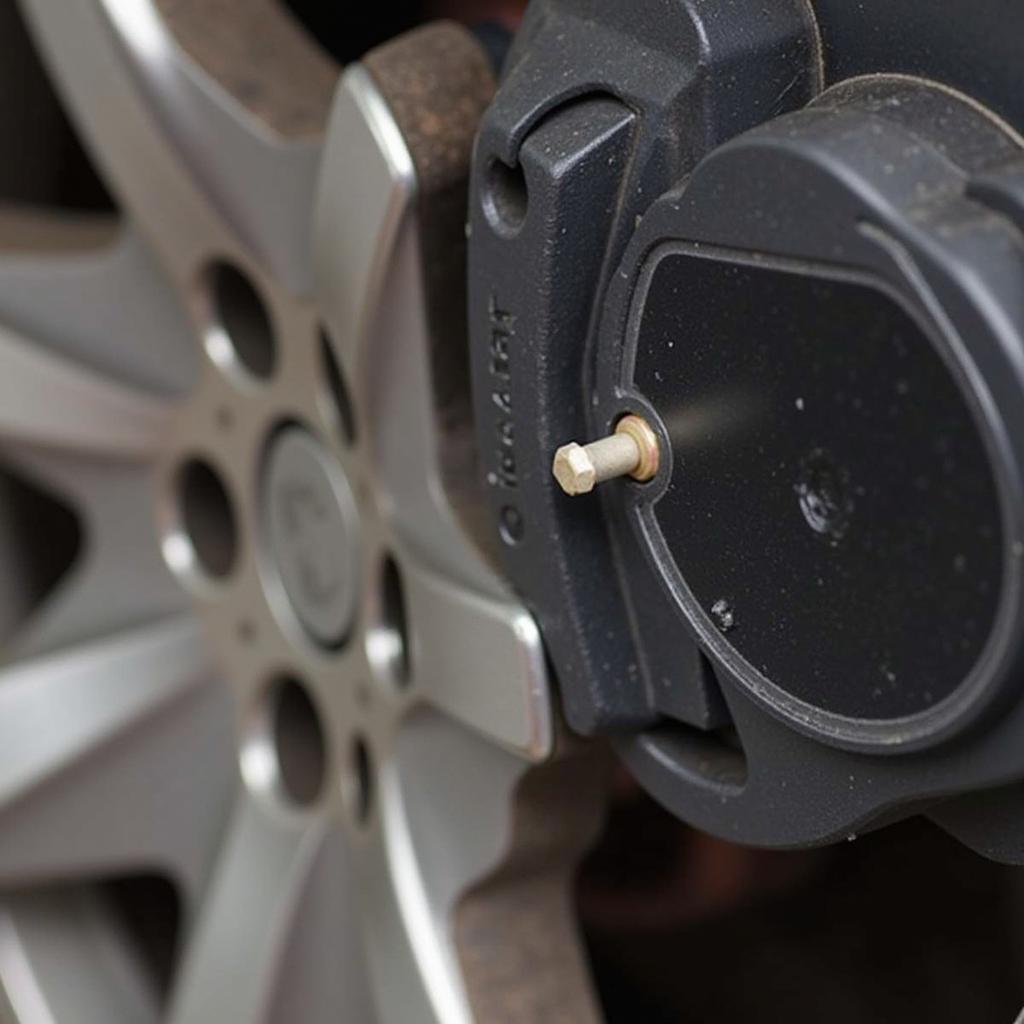The brake warning light on your GMC truck’s dashboard is an essential safety feature. When illuminated, it signals a potential issue with your truck’s braking system that requires immediate attention. Ignoring this warning light can compromise your safety and lead to costly repairs. This comprehensive guide explores the common causes behind a GMC truck brake warning light problem and provides potential solutions to get you back on the road safely.
Common Causes of GMC Truck Brake Warning Light Problems
Several factors can trigger the brake warning light in your GMC truck. Identifying the root cause is crucial for effective troubleshooting. Here are some of the most common culprits:
- Low Brake Fluid Level: This is the most common cause of a brake warning light. Brake fluid is essential for transmitting the force you apply to the brake pedal to the wheels, enabling your truck to stop. If the fluid level drops too low, often due to a leak in the system, the warning light will illuminate.
- Worn Brake Pads: Brake pads are designed to wear down over time with regular use. When the friction material on the pads wears thin, it can trigger a sensor that activates the warning light, indicating the need for replacement.
- Faulty ABS System: Modern GMC trucks come equipped with an Anti-lock Braking System (ABS). A malfunctioning ABS, often due to a faulty sensor or module, can cause the brake warning light to turn on.
- Brake Line Issues: Leaks or damage to the brake lines, which carry brake fluid under high pressure, can lead to a loss of braking power and illuminate the warning light.
- Parking Brake Engaged: In some cases, the brake warning light may be on simply because you forgot to disengage the parking brake fully.
Troubleshooting a GMC Truck Brake Warning Light
 Checking Brake Fluid Level
Checking Brake Fluid Level
Before panicking, there are a few simple checks you can perform:
- Check Your Parking Brake: Ensure the parking brake is fully disengaged. Sometimes, even a slight engagement can trigger the warning light.
- Inspect Brake Fluid Level: Park your truck on a level surface and locate the brake fluid reservoir under the hood. The reservoir will typically have a “brake fluid” label. Check the fluid level against the minimum and maximum markings on the reservoir. If the fluid level is low, it needs to be topped up.
When to Seek Professional Help
If the brake warning light remains illuminated after performing the basic checks, it’s crucial to seek professional assistance. Driving with a compromised braking system is incredibly dangerous.
“Ignoring a brake warning light is like ignoring a flashing “danger” sign,” says Mark Stevenson, a senior automotive technician with over 20 years of experience. “It’s always best to err on the side of caution and have a qualified mechanic diagnose the problem.”
 Mechanic Inspecting Brakes
Mechanic Inspecting Brakes
Here are instances when seeking professional help is non-negotiable:
- Brake Fluid Leak: If you notice a leak in the brake system or the brake fluid level continues to drop, it indicates a leak that needs immediate professional attention.
- Spongy Brake Pedal: A spongy or soft brake pedal is a dangerous sign that your brakes are not engaging properly, requiring immediate professional diagnosis and repair.
- Unusual Noises: Grinding, squealing, or scraping sounds when you apply the brakes often indicate serious brake pad wear or other issues within the braking system.
Advanced Diagnostics and Remote Solutions
Modern GMC trucks come equipped with sophisticated electronic systems. Diagnosing complex brake system issues often requires specialized diagnostic tools and software.
As an expert in automotive electrical engineering specializing in remote diagnostics, I offer advanced solutions to identify and address intricate brake system problems. Through remote programming and software installations, I can help resolve a range of electronic issues that may trigger the brake warning light, providing a convenient and efficient alternative to traditional repair methods.
Preventing Future Brake Warning Light Issues
 New vs. Worn Brake Pads
New vs. Worn Brake Pads
Proactive maintenance is key to preventing future brake warning light problems and ensuring your GMC truck’s braking system remains in optimal condition. Here are some preventive measures:
- Regular Brake Inspections: Adhere to the manufacturer’s recommended maintenance schedule for brake inspections. Regular checks allow for early detection and replacement of worn components, preventing more serious (and costly) issues down the line.
- Timely Brake Pad Replacement: Don’t wait for the brake warning light to come on before replacing your brake pads. Proactively replacing them when they wear down ensures optimal braking performance and safety.
- Quality Brake Fluid: Use high-quality brake fluid that meets the specifications outlined in your GMC truck’s owner’s manual. Flush and replace the brake fluid as recommended by the manufacturer to maintain its effectiveness and prevent corrosion within the system.
Conclusion
Addressing a GMC truck brake warning light problem promptly is essential for your safety on the road. While some causes may be straightforward to address, others require professional expertise. Regular maintenance and timely repairs are crucial to ensure your braking system remains in optimal condition, giving you peace of mind every time you get behind the wheel.
FAQs
Q: Can I drive my GMC truck with the brake warning light on?
A: While you might be able to drive for a short distance, it is highly discouraged and dangerous. Have your truck inspected by a qualified mechanic as soon as possible.
Q: How much does it cost to fix a brake warning light problem?
A: The cost can range widely depending on the underlying cause. A simple brake fluid top-up will be inexpensive, while a complete brake system overhaul will be significantly more costly.
Q: How often should I check my GMC truck’s brake fluid level?
A: It’s a good practice to check your brake fluid level at least once a month, or more frequently if you notice any changes in your brake pedal feel.
Q: Can I top up my GMC truck’s brake fluid myself?
A: Yes, you can top up the brake fluid yourself if you feel comfortable doing so. Ensure you use the correct type of brake fluid specified in your owner’s manual.
Q: Can driving habits affect brake pad wear?
A: Yes, aggressive driving habits like hard braking and frequent high-speed driving can accelerate brake pad wear.


